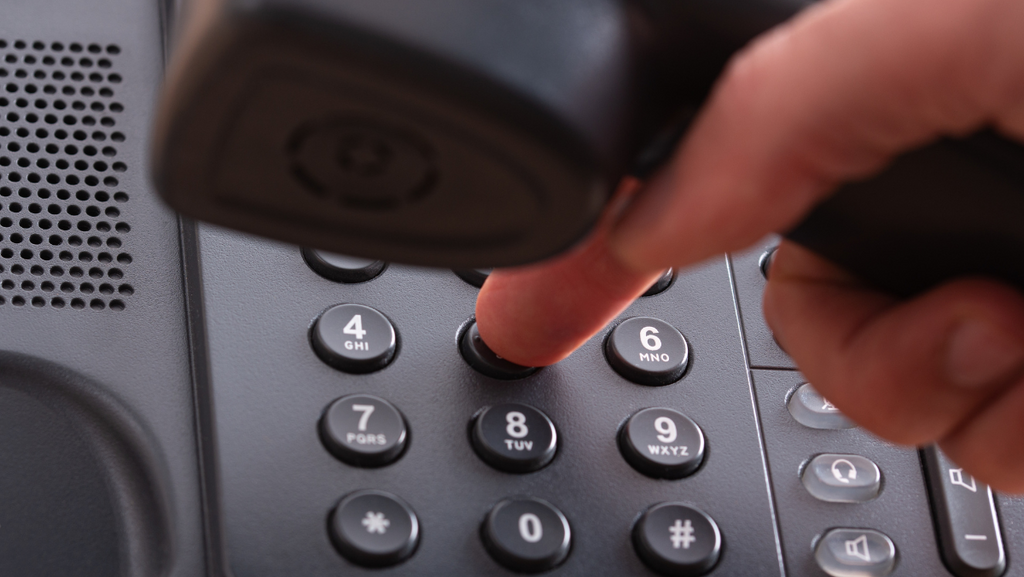Spam calls have become an all-too-familiar nuisance in today’s digital age, particularly for small businesses in the UK. While many people think of spam calls as just an annoyance, the hidden costs associated with them can significantly impact a business’s operations, reputation, and bottom line.
This blog explores the various ways spam calls affect small businesses and offers strategies for mitigating these costs.

Understanding Spam Calls
Spam calls typically originate from automated systems, often using robocall technology, that dial multiple numbers simultaneously. Many of these calls employ tactics like spoofing—where the caller ID is manipulated to show a legitimate or local number—to increase the likelihood of engagement.
Wasted Time and Resources
This section reflects the FSB's findings that small businesses face significant losses due to time spent dealing with spam calls. It accurately ties the financial strain on businesses to the context of rising costs and falling revenues.
Impact on Customer Relationships
It mentions the risk of missing important client inquiries due to spam calls, which aligns with the overall stress small businesses face in maintaining customer satisfaction during economic challenges.
Increased Operational Costs
The section discusses the financial burden of investing in additional systems to manage spam calls, which connects to the study’s mention of rising costs. The potential for data breaches also resonates with concerns businesses have about their financial stability.
Decreased Employee Morale
This section links the frustration from spam calls to decreased job satisfaction and productivity, referencing the importance of a positive work environment, which is supported by the CIPD research.
Compromised Security
It highlights the risks associated with disclosing sensitive information during spam calls, which is a valid concern for businesses facing financial pressures.

Trends in Spam Calls Targeting Businesses
Spam calls are evolving, becoming more sophisticated and targeted in their approach. Businesses, especially small ones, are increasingly becoming prime targets for these intrusive calls as scammers look for ways to exploit vulnerabilities. Understanding the latest trends in spam calls can help businesses develop strategies to protect themselves and minimise disruptions.
Increased Use of Spoofing Technology
Spam callers are increasingly employing spoofing techniques to disguise their true identity. By manipulating caller ID information to display familiar or local numbers, they make their calls appear legitimate. This tactic increases the likelihood of employees answering the phone, leading to more successful scams.
Rise of Phishing Scams
Phishing scams via phone calls are on the rise, where scammers attempt to extract sensitive information such as passwords or financial details. These calls often mimic trusted organisations, creating a false sense of security for employees. As cyber threats become more sophisticated, businesses must remain vigilant against these tactics.
Targeting Specific Industries
Certain industries, such as finance and healthcare, are particularly susceptible to spam calls. Scammers often tailor their messages to appeal to these sectors, exploiting common pain points or regulatory concerns. Understanding which industries are targeted can help businesses in those sectors take proactive measures.
Integration with Digital Scams
Spam calls are increasingly being used in conjunction with digital scams, such as phishing emails or fake websites. Callers may encourage victims to visit malicious links or provide personal information that can be exploited online. This trend highlights the importance of a comprehensive approach to cybersecurity that encompasses both phone and digital communications.
Automation and AI Technology
The use of automation and artificial intelligence in spam calling is becoming more prevalent. Automated systems can generate calls at a much larger scale, allowing scammers to reach a wider audience with minimal effort. As technology advances, businesses need to adapt their defences against these evolving threats.

Recognising Spam Calls
Identifying spam calls can be challenging, especially when they mimic legitimate sources. Here are some common signs that a call may be spam:
Urgent Language
Spam callers frequently employ urgent or alarming language to create a sense of panic. They may claim that immediate action is required to avoid dire consequences, such as legal issues or account suspensions. This tactic is designed to pressure recipients into responding quickly, often leading them to make hasty decisions without verifying the caller's legitimacy.
Generic Greetings
Many spam calls begin with vague, generic greetings instead of using the recipient's name. This lack of personalisation is a significant red flag, as reputable organisations typically address customers directly. If the caller doesn't acknowledge you by name or provide specific information about your account, it's likely a spam call.
Requests for Personal Information
Legitimate organisations will rarely ask for sensitive information, such as Social Security numbers or bank account details, over the phone. If a caller pressures you for personal data, especially if they claim it's for verification purposes, it's a strong indication of a scam. Always verify the caller's identity through official channels before sharing any information.
Unusual Caller ID
Spam calls often come from numbers that appear familiar or local, making it harder to identify them as scams. If you receive a call from a number that seems legitimate but you weren't expecting it, proceed with caution. Cross-check the number online or through your contacts to ensure it’s not a known spam number before engaging.
Repeated Calls from the Same Number
Receiving multiple calls from the same number in a short period is another common sign of spam. Scammers often try to pressure individuals by repeatedly calling, hoping to catch someone at a vulnerable moment. If a number keeps calling and you suspect it to be spam, it's best to block it rather than engage.

Preventing Spam Calls
While it may be impossible to eliminate spam calls entirely, small businesses can take proactive steps to reduce their frequency and impact:
Use Call-Blocking Features
Many smartphones and phone systems come equipped with built-in call-blocking features. Familiarising yourself with these settings can help filter out unwanted calls and minimise disruptions.
Register with the Telephone Preference Service (TPS)
In the UK, registering your business number with the TPS can help reduce unsolicited marketing calls. While it may not stop all spam, it can significantly lower the volume of unwanted telemarketing calls.
Train Employees
Educating employees about recognising spam calls and the appropriate responses can empower them to handle these interruptions more effectively. Establishing protocols for reporting spam calls can also help monitor and mitigate their impact.
Invest in Call Management Solutions
Consider investing in call management systems designed to screen and block spam calls. Products like the CPR Call Blocker can be particularly effective in identifying and filtering out unwanted calls, allowing businesses to focus on legitimate communications.
Conclusion
The hidden costs of spam calls can take a significant toll on small businesses in the UK, affecting time, resources, and customer relationships. By understanding the implications of spam calls and taking proactive steps to mitigate their impact, businesses can protect themselves from unnecessary losses.
With the right tools and strategies in place, small businesses can reclaim their time and focus on their core operations, ensuring a more productive and profitable future.

Introducing CPR Call Blocker: A Practical Solution
If you’re sick of spam calls disrupting your day, the CPR Call Blocker provides an effective solution. The device is designed to block nuisance calls before they even reach you, allowing you to maintain focus and control over your phone. Here’s why it stands out:
Pre-installed spam numbers: The CPR Call Blocker comes with thousands of known spam numbers already blocked, so you won’t be bothered by common scam or telemarketing calls.
User-friendly features: You can manually add numbers to your personal blacklist, giving you complete control over who can and cannot reach you.
Immediate relief: With the push of a button, you can block numbers as they come in, ensuring that repeat offenders don’t disturb you again.
The CPR Call Blocker is particularly useful for individuals who work from home or run small businesses, where every interruption can have a lasting impact on productivity and mental well-being.
Choose CPR Call Blocker, the UK's ultimate call blocking solution. Please browse our selection of products or contact us so we can assist you.










